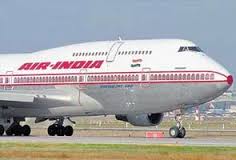Govt approves 100% FDI in defence, civil aviation, food and pharma sectors
New Delhi: In a major boost to the growing economy, the government on Monday launched a second wave of FDI reforms allowing 100 percent inflows in civil aviation and food processing sectors while also easing norms in defence and pharmaceuticals.
The major reform measures were decided at a high-level meeting chaired by Prime Minister Narendra Modi, which was earlier said to have been planned for Tuesday.
The Prime Minister’s Office (PMO) said the decisions will make “India the most open economy in the world for FDI”, but critics said it was a “panic” reaction to Rajan’s decision on Saturday to exit RBI and return to academia after September 4.
Key reform decisions were taken at a high level meeting chaired by the PM, which makes India the most open economy in the world for FDI.
“Now most of the sectors would be under automatic approval route, except a small negative list. With these changes, India is now the most open economy in the world for FDI,” the PMO statement said.
The first batch of FDI reforms were announced by the government in November 2015.
Key Highlights
The government has allowed 100 percent in aviation policy for scheduled carriers. 49 percent FDI has been permitted under the automatic route. At present, up to 49 percent FDI is permitted in scheduled airlines. For NRIs, 100 percent FDI will continue to be allowed under automatic route.
100 percent FDI has been approved in the broadcasting carriage services such as cable networks, DTH and mobile TV and food product e-commerce.
Foreign investment in greenfield pharma projects has been approved 100 percent and 74 percent in brownfield projects.
100 percent FDI has been announced in the defence sector.
The government has also relaxed sourcing norms for up to five years for single-brand retail trading.
Relaxation in FDI norms will help foreign defence companies substantially.
As per a press release: “Now most of the sectors would be under automatic approval route, except a small negative list. With these changes, India is now the most open economy in the world for FDI.”
Entry for Apple
With relaxation of FDI norms and a relaxed sourcing regime for another five years for entities undertaking Single Brand Retail Trading of products having ‘state-of-art’ and ‘cutting edge’ technology, Apple can take a sigh of relief and plan an easy entry into the Indian markets.
With the announcement that government will relax FDI norms, sharp rally in shares of the listed carriers SpiceJet, Jet Airways and InterGlobe Aviation was observed. The stocks gained over 5 per cent.
India stock markets also rallied, with the BSE Sensex rising over 250 points and the Nifty edging close to the key 8,250.
However, what was interesting about the moment of the launch of the FDI policy was that, many felt the steps were apparently aimed at neutralising fallout of Raghuram Rajan’s decision to exit RBI.
Congress spokesman Jairam Ramesh described the decisions as a “panic reaction” which would not have come had Rajan not made the announcement. He also said the Congress does not believe that FDI is a magic wand.
Briefing media, Commerce Minister Nirmala Sitharaman said the decisions would help in attracting more investments, creating jobs and making India the global manufacturing hub.
Asked whether the announcement was timed to counter the ‘hangover’ of Rajan, she said, “This work was going on for a couple of months. Can all this work be done in a day? It is proper to make the announcement when the work is complete.”
With Agency Inputs
Kindly send reply or comments on this topic to [email protected]
Source:Zeenews




